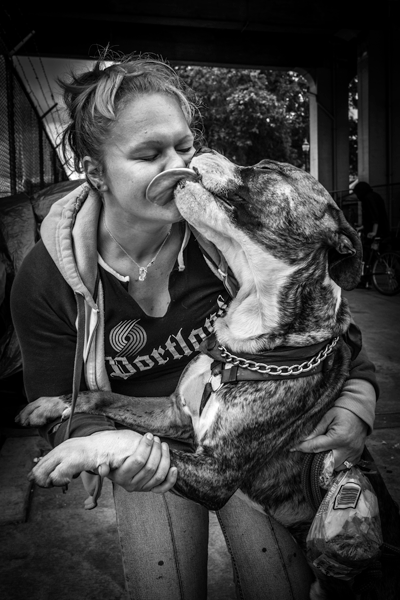
What do you specialize in treating?
My clinical expertise is working with adults suffering from a range of behavioral health challenges including relationships, depression, anxiety, trauma, and addiction. These broad-based labels are really starting points that most often lead to exploring underlying shame, grief, and isolation. Collectively, these problems get in the way of normal emotional and relational development, resulting in painful and challenging relationships. My work is about helping you see the big picture, and understand how symptoms, underlying core issues, and problem relationships are all interconnected. This then provides a foundation for working developmentally to not just treat one issue, but instead intervene on the whole of your life struggles in a way that optimizes your abilities to deal successfully with the messiness of life.
I also specialize in working with clients who are searching for how best to help a loved one. This includes parents who are wrestling with a child acting out (addiction, cutting, anger), or a partner who needs help but refuses to get it. In these cases, many I counsel feel overwhelmed, helpless, and desperate for answers. The good news is that we have some very powerful interventions that can assist you in motivating someone you care about to seek the help they need. If this is an issue for you, please contact me.
Why should I come see you?
Seeing any counselor takes courage because it means opening yourself to the process of self-exploration, to uncovering the unknown. Why might this be scary? Because as Robert Bly so eloquently put it, “We spend our life until we’re twenty deciding what parts of ourself to put into the bag, and we spend the rest of our lives trying to get them out again.”
What goes into the bag is different for everyone, but it tends to be the stuff we want to disown, forget, or that taps into our shame. And going into a dark bag can be scary when you are not exactly sure what you are going to find. But we all carry a bag, and the more that goes in it, the heavy our load in life. Part of therapy is about lightening the load, and doing it in a safe, slow and productive way. It is a courageous journey and not for everyone.
Therapists and therapies are very different. There is no one perfect therapist or particular type of therapy that is better than all others. What we know about outcomes is that the best predictor of success in counseling comes from the strength of the therapeutic relationship. This really comes down to how well we connect, share, engage, trust, and feel when we are together.
What form does your counseling take?
Usually I work individually with clients, seeing most for one session each week unless there is a need for more contact. Occasionally I will work with couples, but often find it beneficial to work individually with clients and refer couples work to colleagues. At times I run groups, so if this is something you are interested in, contact me.
 How do you evaluate my issues and develop a treatment plan?
How do you evaluate my issues and develop a treatment plan?
Our work begins by understanding your challenges within the context of a systems approach. This means we take time to understand the various pieces of your life puzzle, how these pieces dynamically interact, and which ones are key to helping you move in a positive direction. We call these key pieces leverage points, because when we identify and intervene upon them, they have the power to influence many other aspects of your life. This is helpful because it means we use your time and resources wisely.
Leverage points are often not obvious and can take time to emerge. Examples include: Uncovering missed or incorrect diagnoses, changing intervention strategies, or focusing on what you want in life versus trying to solve a problem. With a 168 hours in a given week, it’s critical that our time together gets you where you want to go.
What does your initial counseling approach look like in practice?
I am a firm believer in the idea that knowledge is power. So one component of my counseling approach is to help you better understand your life struggles so you are empowered to take steps to improve your situation. While we are taught many things in school, sadly some of the most important things about life, relationships, emotions, and creativity are ignored.
Even more, when we find ourselves struggling with challenges like trauma, depression, addiction, grief, or shame, it can feel overwhelming knowing where to start. So I spend time helping you learn how to navigate information overload, and connect with resources that are current, evidence-based, and most importantly help you understand what change strategies may work best for you.
How do you help me change?
While a bit of a catch-phrase, the counseling I do is always individualized. There are no one-size-fits-all approaches to addressing the complexities of your life. In general, my style is a mix of talk therapy with interventions that focus on helping you better connect with your body and emotions. Talking facilitates understanding, insights, and important Ah-hah moments that motivate change. Yet many of the most challenging issues like trauma and addiction require a more somatic, or body-based approach to healing.
If you are unfamiliar with these types of interventions, you are not alone. Many believe counseling is all about talking, but approaches like Focusing, Emotion-focused Therapy, and Sensorimotor Psychotherapy are evidence-based therapies that also produce insights and Ah-hah moments using the wisdom from our body and emotions. I blend these approaches with talking to help you achieve the outcomes you seek.
Do you measure outcomes?
Yes! Often those who engage in counseling have a vague idea about what outcomes they desire. Most just want the problems for which they seek therapy to resolve and go away. But outcomes ultimately provide accountability for me as a clinician, and for you as a client. They help establish measurable targets that we can use to assess our progress in working together, and whether we need to change our approach. I measure outcomes using various assessment tools, and collaborate with you on determining what outcomes are most important.